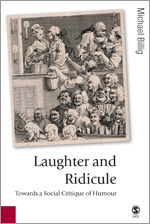Laughter and Ridicule
Availability :
In Stock
₹ 12,660.80
M.R.P.:₹ 15826
You
Save: ₹3,165.20 (20.00% OFF)
(Inclusive
of all taxes)
Delivery:
₹ 0.00 Delivery charge
Author:
Michael Billig
Publisher:
SAGE Publications Ltd
Edition:
1st Edition
ISBN-13:
9781412902502
Publishing Year:
July 2005
No. of Pages:
272
Weight:
560 grm
Language:
Unknown
Book Binding:
Hardcover











